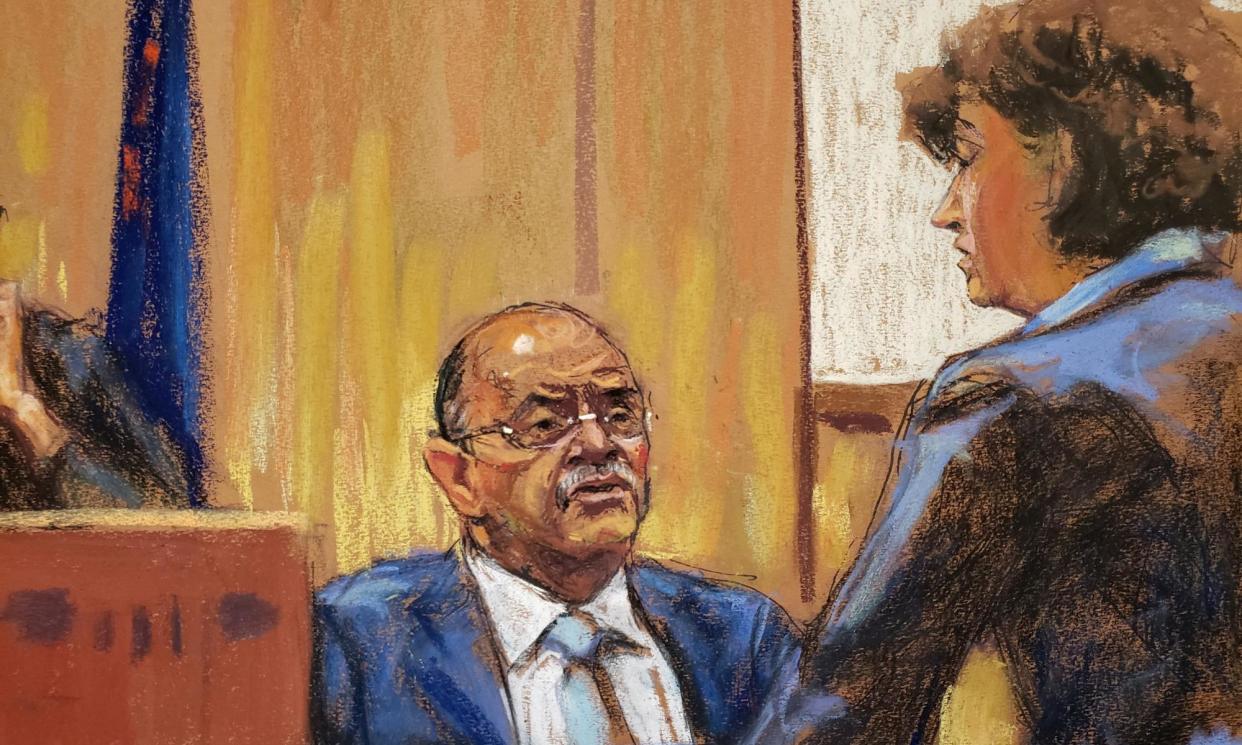Trump’s fraud trial rattled by witness’s possible perjury deal

- Oops!Something went wrong.Please try again later.
- Oops!Something went wrong.Please try again later.
A potential perjury deal with a key witness could shake up the verdict in Donald Trump’s $370m New York fraud trial, a new court document reveals.
Arthur Engoron, the judge presiding over the case, sent an email to the trial’s lawyers on Monday asking them to give him more information about a supposed perjury deal that Allen Weisselberg, a former Trump Organization executive, is making with the office of the Manhattan district attorney, Alvin Bragg.
While Bragg’s office is not involved with the fraud trial – which is being prosecuted by the state attorney general’s office – the district attorney’s office is overseeing a separate hush-money case against Trump. The New York Times reported on 1 February that Bragg’s office was in the early stages of negotiating a deal with Weisselberg.
Should he take the deal, Weisselberg would admit to committing perjury during his October testimony in the fraud trial. In exchange, he would not have to be a witness against Trump in the hush-money trial, which is scheduled for March.
Related: Appeals court denies Trump’s immunity claims in election interference case
In his fraud trial, Trump is accused of inflating the value of his assets on government financial statements. In the hush-money case, Trump is accused of falsifying business records, reporting hush-money payments to the former adult film star Stormy Daniels as legal fees. Trump’s fraud trial is a bench trial, meaning there is no jury, and Engoron is the sole decider of the case.
Weisselberg, who served as chief financial officer for the Trump Organization, is a key figure in both cases, having been intimately involved with Trump’s finances for decades.
On the witness stand in October, Weisselberg abruptly ended his testimony when Forbes published a story saying he lied on the stand. He had been mostly evasive in his testimony, saying he had not been involved in evaluating Trump’s triplex apartment in Trump Tower. On financial statements, Trump said the apartment was 30,000 sq ft when it is, in fact, closer to 11,000 sq ft.
Though Weisselberg testified that the triplex apartment had not concerned him, Forbes reported it had records from when the magazine worked with Weisselberg to calculate Trump’s net worth. Weisselberg had repeatedly tried to convince the magazine that the triplex was 30,000 sq ft, despite the magazine having evidence that it was 11,000 sq ft.
In his email, Engoron said he wanted to know whether Weisselberg “is admitting he lied under oath in my courtroom at this trial”. “Although the Times article focuses on the size of the Trump Tower Penthouse, his testimony on other topics could be called into question.”
Engoron said he might use such a perjury admittance to “invoke falsus in uno”, meaning he would judge Weisselberg’s entire testimony as not credible. Engoron asked lawyers from the attorney general’s office and from Trump’s team to detail “anything you know about this that would not violate any of your professional ethics or obligations” along with how the lawyers think Engoron should “address this matter, if at all, including the timing of the final decision”. He gave them a 7 February deadline.
The judge initially said he would aim to deliver a verdict by 31 January, though the email implies there will probably be even more time to wait until a final judgment is reached.

